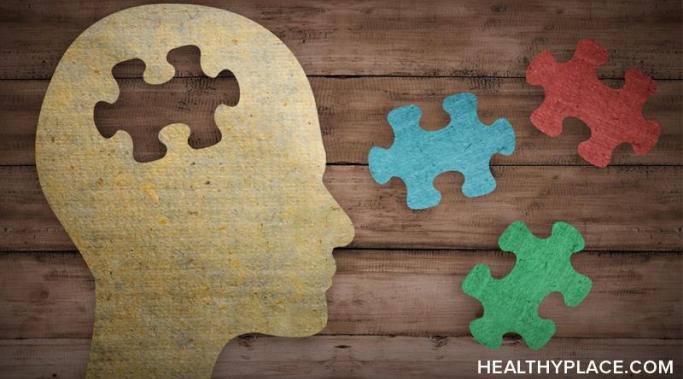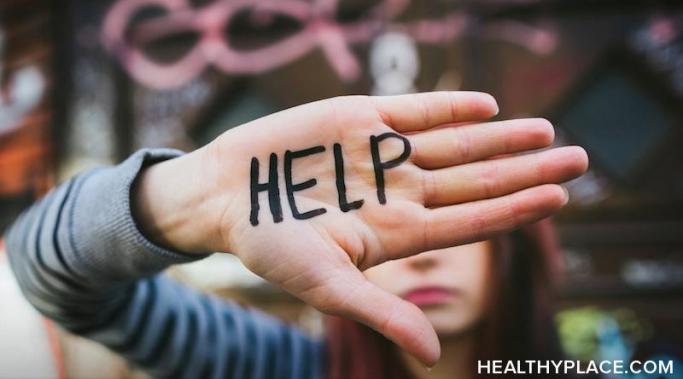My husband and I are standing in the kitchen of our new house, picking out paint colors and deciding which projects to tackle first, when suddenly I think "It doesn't matter, I won't be there to enjoy it. I'm going to end up killing myself eventually." I don't mean to think this. I don't want to think this. Luckily, I've had experience with these intrusive suicidal thoughts before, and I'm able to stay calm. I know that I don't want to die, I'm just experiencing a lot of change and my brain is seeking out the comfort of its old neural pathways.
Lifestyle Changes
I've resisted recovery for all kinds of reasons, including because I was sick of trying to be perfect. I spent most of my adolescence trying not to be like other teenagers, not to go through "phases" or be bad. I tried so hard to do things "right." When mental illness appeared in my life, I could barely do things at all, let alone do them "right," so I got angry.
No one wants to see their child develop mental health issues or suffer in any way. Oftentimes parents with mental Illness are asked if we fear we'll pass our illness down to our children. I've always thought there are worse things to fear. Still, I can't ignore genetics, and I know my daughter is at a higher risk of developing a mental illness because I have schizoaffective disorder. So I wonder, is there a way to try to prevent it from happening? Or is my time better spent preparing her for the possibility?
Executive dysfunction is a major problem for most people with all kinds of mental illness, myself included. Executive function is the ability to organize and execute our thoughts and actions, and executive dysfunction is the opposite: scattered thoughts, missed deadlines, and intense frustration over everyday tasks. Accomplishing even the simplest of goals can require a Herculean effort with executive dysfunction.
Having a mental health recovery-friendly home is important because an important piece of mental illness recovery is feeling safe -- and if you're lucky -- relaxed. We can't always control our environment and surroundings, but I do think there are ways to arrange and organize your home to aid your mental health recovery. Here are seven ways to make your home more mental health recovery-friendly. They are not major changes, just simple ideas that might make a difference.
My mental illness recovery is important to me, now more than ever, because of my daughter. I have been in mental illness recovery since my early 20s, long before I ever thought I'd be a mom. When my husband and I found out we were expecting, we were ecstatic, but I also felt overwhelmed. There is no turning back from this awesome responsibility. Nothing would ever be the same. My daughter is now two-and-a-half, and it's like I can't even remember what life was like without her. There's so much I want to show her and teach her, but I have to be mentally healthy and well to do that. Here are four reasons my daughter motivates me to make my mental illness recovery important.
Breakthrough symptoms caused by mental illness can really hinder your progress towards goals; however, reaching your goals is not impossible. Stress exasperates mental illness symptoms, but that doesn't mean you should give up. Understanding your symptoms as well as your limits can be crucial to your success.
Is it motherhood or mental illness that makes me so anxious about my child? My daughter is two and a half, and I'm learning that oftentimes toddlers can be more difficult to deal with than infants. She's very mobile and vocal, and I worry all the time. I know it's natural for parents to worry, but how much anxiety is normal? Just about any thought involving the future makes me nervous. I don't know if every mother feels the same, or if my mental illness intensifies my fears. Maybe you can help me decide if my fears are those of motherhood or mental illness.
My mental illness is part of my identity because of its huge impact on my life. When I was first diagnosed with schizoaffective disorder, I thought everything in my life could go back to the way it was before my symptoms got out of hand. I didn't know my life would take a sharp turn in a different direction.
Asking for mental health help is hard. Making the decision to move back home and get eating disorder treatment was difficult for me, even though I had known for a long time that something was wrong. I wasn't okay and I finally surrendered. I felt like it was my only choice. I've always been ambitious, and I needed to get my life back on track. At that moment, I wasn't able to do anything. Asking for mental health help was the best thing I could have done.









